I don’t remember the day I became a woman because I was too embarrassed
It’s time our families and societies joyfully celebrated their girls’ first periods, so that we can all be proud of our bodies, not ashamed of them
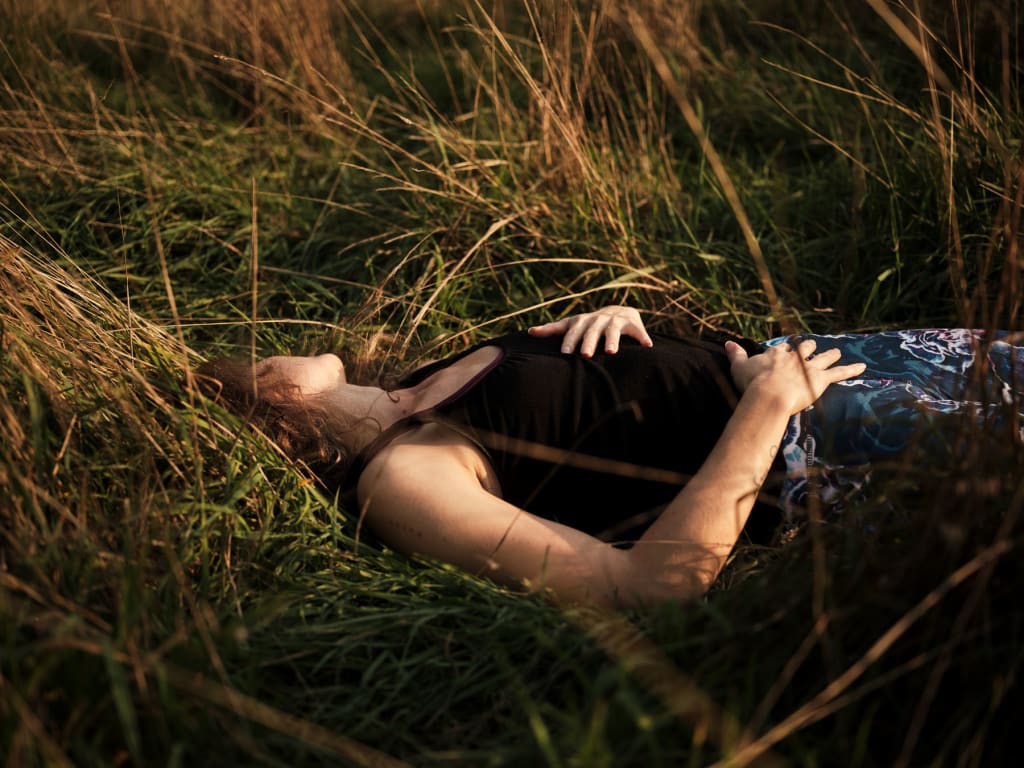
I’m fairly certain I was 14 and I believe I must have been at school when I started — an all-girls boarding school. I suppose there must have just been a lot of blood suddenly there in my underwear. So much! So deeply, darkly, thickly red! This is me guessing at the thoughts that must have tumbled through my head, presumably in a toilet cubicle. But I do have a vague sense that I was surprised at the sheer volume of blood that fell out of me, and that sensation of it falling — viscous, a bit like honey without the sugary stickiness, and very warm; I still find it curious. The smell of body and iron.
What did I do? I expect it went like this. We had a school nurse, and a corner of her surgery was always piled high with packs of pads and tampons that you could help yourself to whether she was there or not, so I would have gone there first. I don’t recall a conversation with her. My mother was overseas, since we lived in Indonesia at the time, and I doubt I called her. In our family, there was very little communication about such things. Anything that happened below the waist was a red-faced thing to be avoided. My mother didn’t talk openly and comfortably about periods to me. I just knew that one day it would happen, without knowing the detail of what to expect. I’ve never heard the word ‘period’ leave my father’s mouth. I had a bit of insight from our biology classes, but all very mechanical, arrows pointing to body parts, and linear. Nothing about ebbing and flowing, circles, no sense that there might be times of the month when I would feel raw and vulnerable and others when I might feel so powerful, I’d risk burning myself out. Nothing about how we might take care of ourselves emotionally. And no mention at all that a girl’s first period is something sacred. I gleaned more scraps of information from teen magazines and things that the other girls at school said. Pieces of a very incomplete puzzle, with whole chunks missing and often pieces forced together that shouldn’t have been.
I never felt different, or initiated or arrived. I imagine I just started joining in conversations about it with classmates who’d already started, by way of announcing myself.
And that was that. My cycling had begun, and the events of that day — one of the most important of my life, of any girl’s life — fizzled into darkness like a blown-out wick caught between licked fingers. No longer a little girl but drifting blindly into young womanhood without any kind of compass on a sea of…between.
I don’t blame my parents. My mother’s relationship with her mother was difficult. There was an absence of warmth. She woke up one morning with blood on her sheets. My grandmother described menstruation to her as ‘a pain’, a sort of cross that women must bear, and handed her a contraption with an elastic band that wrapped around her waist with loops from which you suspended some sort of pad. No fanfare, no celebration — in fact, more of a commiseration.
Because a few thousand years of organised religion and societal conventions — notably, centuries of barring women from studying and practicing medicine — have done a fine job of shutting us out of our own bodies. We — because of the fact of our menstrual blood — have variously been weak, toxic, unclean, hysterical.
In AD 79, Pliny the Elder wrote in his hugely influential work, Natural History:
“Contact with it [menstrual blood] turns new wine sour, crops touched by it become barren, grafts die, seeds in gardens are dried up, the fruit of trees falls off, the edge of steel and the gleam of ivory are dulled, hives of bees die, even bronze and iron are at once seized by rust, and a horrible smell fills the air; to taste it drives dogs mad and infects their bites with an incurable poison [. . .]”
Dr Kate Lister, a researcher at Leeds Trinity University and expert is historical attitudes to sexuality, records the scale of ignorance and myth-spreading by leading Victorian physicians in her paper Menstrual Madness in the Nineteenth Century. In 1805, Dr. Thomas Denman wrote in An Introduction to the Practice of Midwifery that:
"When women are deprived of the common uterine discharge, they are liable to periodical emissions of blood from the nose, lungs, ears, eyes, breasts, navel and almost every other part of the body".
Dr John Burns, in his Principles of Midwifery (1811), wrote that menstruation is…
“…to be considered as a disease” — a disease that could lead to madness.
In 1848, Dr Jacobi noted that…
“…at such times [menstruation] a woman is undoubtedly more prone than men to commit any unusual or outrageous acts.”
The examples are exhaustive — and exhausting.
It was only in the early 20th century, when more women began to enter the medical profession, that the light of truth began to run the darkness of ignorance out of town, but even so, period shaming persists. In 2015, Instagram removed an image posted by artist Rupi Kaur in which she was fully clothed with a spot of blood between her legs and on the sheets — not once, but twice — because it ‘breached community guidelines.’ What these guidelines were was never explained. Right up until 2017, blood in sanitary product adverts was a clear blue liquid, the red that billions of the population (and the female half of the Kingdom Mammalia) releases as part of the turn of the magnificent wheel of life somehow deemed too offensive.
What should we take from this, other than the message that what our bodies do is strange, aberrant, not right?
Pulling outwards — because it is all connected — you may have heard the statistics around female heart attacks. We’re more likely to die that a man from a heart attack because the symptoms we present with can be very different than in men, yet only men’s bodies have traditionally been studied in clinical trials. Too often we aren’t believed by doctors when we’re telling them that something is very wrong. The tests are not run, we’re told it’s something else (more often than not stress or exhaustion), and to go home. Researchers from the University of Leeds used anonymised data from the UK’s national heart attack registry to analyse the treatment and outcomes of 691,290 people who were hospitalised for heart attack in England and Wales between 2003 and 2013. They found that more than 8,200 women could have survived their heart attacks had they been given the same quality of care as men. The same sex-based variation extends to the prevalence and symptoms of mental health conditions like depression and PTSD, and disorders such as schizophrenia and bipolar. Many of the drugs we use have only ever been tested on male mice. Around 80% of rodent drug studies were habitually conducted only on males before being rolled out for use in humans of both sexes, leading to significant problems — more side effects, overdoses — in female bodies, with their fluctuating hormone levels and tendency to metabolize substances differently. The sedative Ambien being one example — it can hang around in a woman’s body for hours longer than in a man’s. The US National Institutes of Health and the Canadian Institutes of Health Research introduced mandates in 2016 to include both sexes in research, but major UK funders such as the Wellcome Trust and the Medical Research Council have yet to introduce any similar requirements.
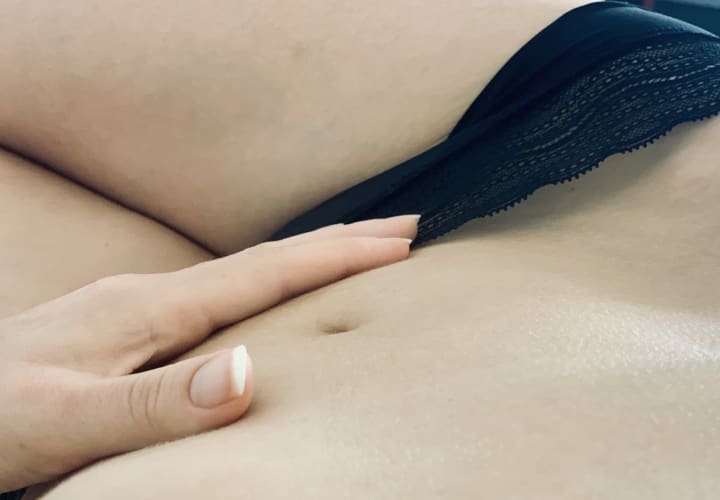
My body continues to be thought of as mysterious and, for some reason, fraught with problems. Easier to poke fun at than to try to understand, all the potential of creation reduced to ‘women’s problems’ and the ‘it-must-be-her-time-of-the-month’ eye roll.
So…. I understand the forces that were at work around my own parents’ discomfort with the red-stained subject of my becoming a woman.
I thought no more about that day until, a couple of years ago, I read Wild Power, co-authored by psychotherapists and women’s health and wellbeing experts Alexandra Pope and Sjanie Hugo Wurlitzer. It guides women in reconnecting with the natural rhythms of their menstrual cycles, in how to work with the energies of the different stages to manage and gain insight into their overall wellbeing — physical, mental and emotional — and how to use it to harness their inner creative power.
I suddenly felt I had been robbed of something very important.
Not long after I had read their book, as though feeling me, the authors emailed out to their mailing list a meditation ritual designed for women who’ve had negative experiences of the start of their period — whether acutely traumatic or, like me, just a resounding silence — to help them retrospectively honour that time and that transition. To re-connect with and celebrate alongside the young woman they were. To acknowledge and make her feel seen and received as a means to heal and close the wound.
It instructed me to create a circle on the ground — representing the world of my younger self — and place two chairs or cushions in the centre of it, one for me as my adult self and the other adults closest to me, and one for my 14-year-old self at menarche. In it I was to create a little altar, placing a candle, perhaps a flower and a photo or symbol of my younger self. I was away travelling and had nothing to hand, though even if I’d been at home in London, I would have struggled to find something. I have kept few photos of myself from that time, since I’d started to develop, things growing out of proportion with each other, and felt lumpy and uneven — nothing-y, in the mirror. In the end I used a piece of rose quartz given to me fairly recently as a gift, because it was the only link I had to that young girl who so loved collecting rocks and crystals, lining them up in a little display cabinet and looking up their scientific names in a battered geology reference book.
I also had to place into the circle a gift to give myself at the end of the ceremony. I had gone into town earlier in the day and taken time choosing a beautiful silver ring made with rough-cut semi-precious stones, and I was excited to place it on my own finger, as though proposing to myself. Finally, I sat on one of the cushions, opened the ceremony by lighting a candle, and closed my eyes. Beforehand I’d had to write a script; words that I would deliver to my younger self. Words I wished I had heard at the time from those closest to me. But first, a guided meditation helped me travel back and sink into the time that I was 14 — what was happening in my life, the family’s circumstances, how I might have been feeling.
It was a strange experience, trying to be her again. The whole family was going through a transition, my parents preparing to move back to the UK as my father’s overseas Army posting was coming to an end, and our school was in the process of merging with another school, so there were new faces in classrooms and boarding houses. I felt she/I was turning around and around, spinning slowly, trying to anchor her/myself to something in the world. A coherent sense of self was absent. She/I wanted to be stopped and pointed in one direction or another. She/I was very often turned inward.
Then it was time to read the script to her — as my mother, father and grandmother. I sat on the adults’ cushion and read out the lines, and then switched to the opposite cushion to receive them as her. It went like this:
Welcome to your womanhood.
We’re so excited to meet you here.
What a beautiful daughter/granddaughter you are.
Kind and talented.
We’re so proud of you.
We love you so much.
We can’t wait to see you grow and unfurl into your womanhood.
Now go and put something special on, because we’re going out to celebrate!
I cried and cried and cried, which I hadn’t been expecting. Each word landed like a cannonball in my heart and out of the gaping holes poured such tenderness for this sweet girl in front of me who ached to know what to do with herself. It was an immensely powerful practice, and by the time I re-traced the timeline back to my older self, put the ring on my finger and blew the candle out, I felt I had said something unsaid, finished something unfinished.
Yet I could not resurrect any memory of that day all those years ago.
My experience — this not remembering of such a fundamental transition — is alarmingly ordinary, certainly among many friends and other women I’ve spoken to here in the UK.
“I don’t remember it, weirdly,” said one, sounding as though she was contemplating this for the first time. “It was something not to be talked about, to be hidden.”
“I don’t know when it started, I don’t know how I reacted, I don’t remember my mum saying anything, I just have no memory. I must have suppressed it,” said another.
I talked to my younger sister. She is also in her late thirties and, strangely, it was the first time we had spoken of it.
“I just put sanitary pads in the shopping trolley one day in the supermarket and hoped so hard that no-one would notice, or at least no-one would say anything.”
Neither my mother nor I did. I never ventured that conversation with my own sister out of learned embarrassment.
Memory loss, or uncomfortable silence, though sad and no doubt damaging in ways as yet unclear to our bodily sense of self and self-worth, is as nothing compared to some of the extreme and sometimes life-threatening shaming endured by women in other cultures across the world.
Discrimination against menstruating women is widespread in India, where periods have long been considered impure, and they are often excluded from social and religious events, denied entry into temples and shrines and even kept out of kitchens. In Nepal’s predominantly agrarian communities, women are banished from their homes every month when they get their periods to menstruation huts or sheds made of mud or straw, often sleeping among sleep, goats and buffalo. In the winter, when temperatures drop below freezing, there’s little they can do to protect themselves. They are also banned from touching food or using community water sources. A practice called chhaupadi, it was banned by the government in 2005 but still persists, and women are still dying. According to the charity Water Aid, in parts of Nigeria, a menstruating woman is considered to be cursed, possessed by evil spirits. Such intolerance has serious implications for safety around menstruation, including access to clean water, private facilities and affordable hygienic menstrual products as opposed to moss or filthy rags or whatever else is to hand.
Fear. Fear of contamination, fear of bad fortune, fear of… power? Whatever, we fear and suppress what we don’t understand, and too many — in the age of commercial spaceflight, when we can precisely edit our own genomes — still don’t understand periods.
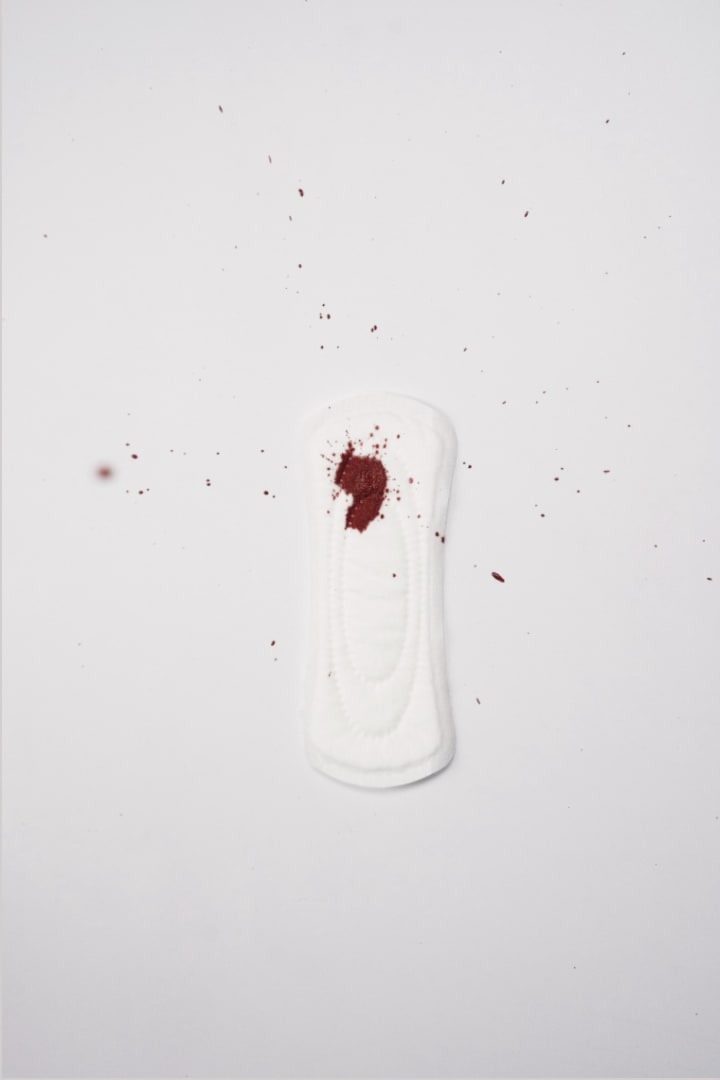
The rise of femtech, including period tracking apps, is puncturing a health tech glass ceiling and waking the world of venture capitalism up to the fact that there is a huge untapped market for innovations designed to support women’s bodies. Money talks, of course. And pioneering work is being done by women like Amy McKeown — an award-winning mental health and wellbeing consultant I’ve known since we studied at university together — to develop ways to integrate women’s health and mental health guidelines, which incorporate menstruality awareness, into corporate wellbeing strategies.
But a lot of Amy’s work is also teaching women not to fear their own bodies. She is among the first intake of women training to become a facilitator of menstrual medicine circles, a new healing modality developed by Wild Power authors Alexandra Pope and Sjanie Hugo Wurlitzer and taught through their UK organisation The Red School. It involves holding a woman in a meditation and using the power of menstrual cycle awareness (MCA) to gain insight and healing across the physical, emotional and psychological layers of her being. She guided me in one of these meditations, and the loud but loving messages that bubbled up from the depths of me made me stop, breathe and make a serious re-assessment of my plans. I’ve written about it here.
“It’s about equality of understanding,’ Amy said as we wrapped up our Zoom, ‘and that starts with getting women more embodied and more interested.”
Because if we can’t love and understand our own bodies, how can we help those that don’t cycle to understand and love — rather than fear — our bodies, too? Once we truly understand and celebrate our differences, perhaps we can get on with focusing on the ways in which we are all, in my opinion, aligned. In wanting to be seen, to be heard, to be understood. To feel a sense of purpose. To be loved unconditionally not for what we do or what we have but for who we are, our essence, so that we are able to live in peace, without any sense of lack. Or any sense of shame.
So, I think we should all devise rituals to make a really big deal of the day our girls become women. Make it ceremonial and sacred and invite boys and men and anyone else who doesn’t cycle to the party. Jewish families have Bat Mitzahs, yes, but I’m not talking so much about coming-of-age ceremonies as — specifically, outside of religion — honouring that first period, that biological watershed moment.
Let’s take inspiration from cultures that treat menstruation with respect and delight. Like South Dakota’s Yankton Sioux/Ihanktonwan Oyate Reservation, where girls who’ve had their first period go through a four-day ceremony, living together in a special tepee throughout and brought feasts by the other women. Activities throughout the four days include gathering herbs, fruits, and wildflowers, learning ceremonial songs and beading techniques, and listening to elders give serious talks about sex, relationships, and mental health. Among the hunter-gatherers of the Ituri Forest in the eastern part of the Congo, a girl’s first menstruation triggers a celebration called the elima ritual, which embraces the entire community and continues across several moon cycles. Girls who have begun menstruating go inside an elima hut — a structure like a temple at the heart of the village — with older women to be given practical lessons about sex and men and to learn ancient songs, the hut resounding with their singing, before they emerge to join in festivities with the rest of the community.
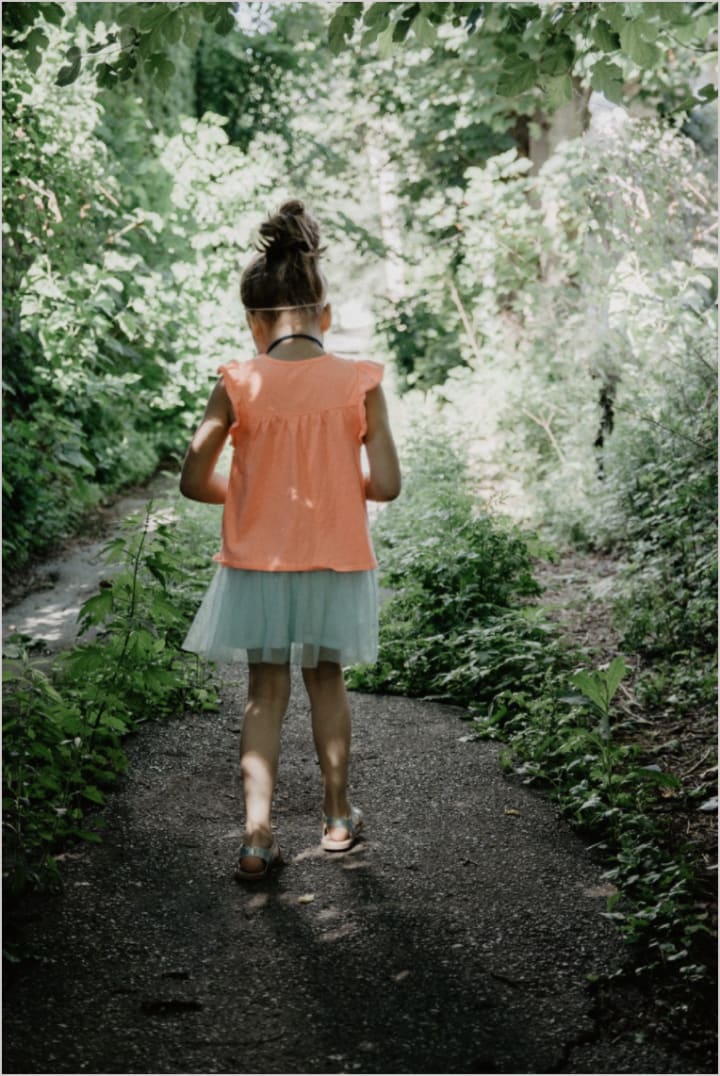
I have a niece and a goddaughter. When their days arrive, I am going to make sure they arrive. I’ll carve out time and space for them to step out of the normal events of their days and really sit with all the sensations it brings. I’m going to get dressed up with them and their families and have a celebration. And I’ll hand-write them each a special letter telling them how extraordinarily powerful their bodies are and how limitless their potential and how proud I am to be their aunt/godmother. I want them to be in awe of what they’ve become — just as I want my 14-year-old self to be in awe of what she has become. I’m going to make sure the girls in my life get a welcome they’ll never forget. Because no girl should forget the day that she becomes a woman.
About the Creator
Charlie Nicholson
Yoga teacher. Trauma sensitive yoga teacher. Freelance writer & copywriter. Freelance documentary development executive. Passenger of plant medicines. Follow me on IG: @charlienicyoga & find out more at charlienicholsonyoga.com




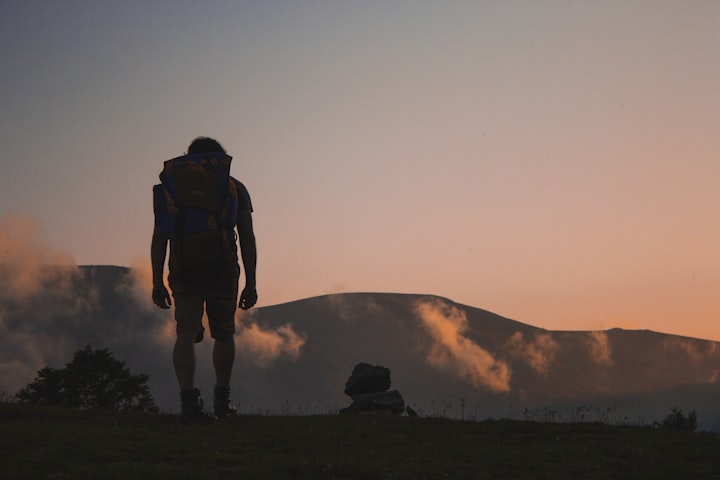

Comments
There are no comments for this story
Be the first to respond and start the conversation.